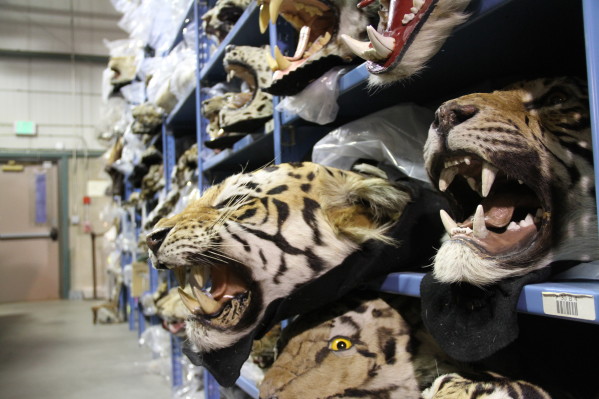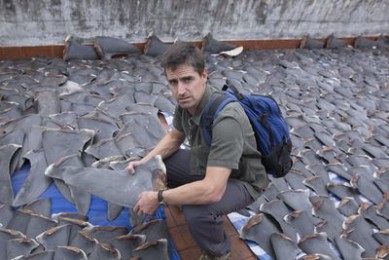REVIEW: ‘Racing Extinction’ is an important cry for help

Racing Extinction, the important and poignant documentary about the many animal species headed toward finality, is a necessary shot to the gut. The film’s assembled team of activists, including director Louie Psihoyos, perform an important task with Racing Extinction, which premiered in cinemas and then was aired on Discovery Channel. They grab the attention of viewers and imbue environmentalism and animal rights issues with an urgent sense of immediacy.
This generation, they argue, needs to better take care of the planet. Too many species are dying off or hanging perilously close to the edge of extinction. Without addressing climate change, respecting animals’ rights, changing policy and inspiring people to care, these animals, and by proxy us humans, are doomed to fail. However, Racing Extinction is not all doom and gloom. There are many messages of hope and opportunity throughout the film. Psihoyos and company, dubbed the Oceanic Preservation Society, seem as interested in identifying the problem as they are in pushing actionable solutions.

The team behind Racing Extinction will be familiar to documentary watchers. In the Oscar-winning film The Cove, they brought to vivid light the horribly distressing circumstances of the ongoing dolphin slaughter in Taiji, Japan, and the tireless efforts of Ric O’Barry. If that film was more personal and action-based, Racing Extinction is much more global in nature. They tackle large issues and document “brave people working every day to save vulnerable species.”
Perhaps the most interesting aspect of the documentary is how the team is able to bring technology to the environmental conversation. Using high-definition cameras and stunning displays projected on a variety of cityscapes, the filmmakers are able to bring the simple message of animal rights to so many interested members of the public. The images that were broadcast on the exterior of the United Nations building in New York City (and later the Vatican’s St. Peter’s Cathedral) are beautiful and make the message so simple and moving: Animals deserve protection.

If the world does not act soon, some of the most recognizable species on planet Earth will be lost forever. It’s no longer a conspiracy theory to say that rhinos, elephants and other iconic fauna may be relegated to history books and zoo facilities if climate change, poaching and other detrimental problems are not solved. Take one look at the shark-fin sequence in the film and try to find justification for the slaughter.
Racing Extinction is surely an activist film. The documentary is meant to start a conversation rather than present a finished product. Even a cursory glance at the film’s website will show how much the Oceanic Preservation Society is interested in making real change. Viewers can sign petitions, take animal quizzes, donate money, host personal screenings and challenge their hometowns. This sustained effort is a wonderful complement to the film itself.
Documentaries like The Cove, Racing Extinction, Bag It, Planeat and Blackfish, to name a few, are part of a larger wave of environment and animal-based films that call for change, that call for industries to realize that the clock is ticking and time is running out. Sometimes, after watching these inspiring and simultaneously horrifying documentaries, it’s a wonder that these images of habitat destruction, animal deaths and questionable treatment can still be a reality in the 21st century. It’s time to change our practices. It’s time to win this battle that we’re responsible for starting in the first place.
By John Soltes / Publisher / John@HollywoodSoapbox.com
- Racing Extinction
- 2015
- Directed by Louie Psihoyos
- Written by Mark Munroe
- Featuring Psihoyos, Elon Musk, Jane Goodall, Charles Hambleton, Leilani Münter, Travis Threlkel and Joel Sartore, among others
- Rating:





